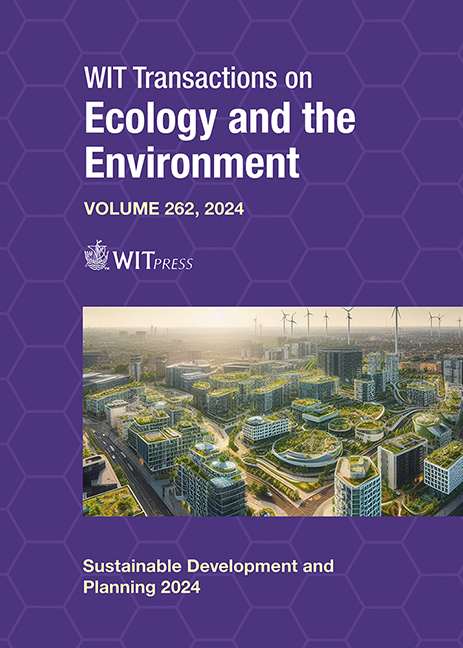THE URGENT CALL FOR TANGIBLE ACTIONS TO ADAPT REGIONS TO CLIMATE CHANGE IMPACTS: THE EXAMPLE OF IMPETUS MOUNTAIN DEMONSTRATION SITE
Price
Free (open access)
Transaction
Volume
262
Pages
10
Page Range
909 - 918
Published
2024
Paper DOI
10.2495/SDP240751
Copyright
Author(s)
VALENTINA D’ALONZO, VALENTINA M. CITTATI, ELEONORA LEONARDI, SILVIA COCUCCIONI, LIZ J. OLAYA CALDERON, PETRA PAGLIUGHI, MATTEO RIZZARI, GIORGIA ROBBIATI, NICOLÒ FRANCESCHETTI
Abstract
The IMPETUS project, funded in the EU Horizon 2020 Green Deal call has, as a main objective, to turn climate commitments into tangible actions developing and validating multi-level and cross-sectoral solutions for climate change adaptation. The project aims at building communities of local stakeholders able to support strategic decision-making processes within the seven project demonstration sites. A key element of the project is the combination of digital and human dimensions to implement durable adaptation pathways that can also be replicated in similar biogeographical regions. Valle dei Laghi (located in the Italian Alps) represents the mountainous biogeographical region. In this valley, climate change is generating water stress where water resources have been typically abundant, as water scarcity is recently identified as the more urgent climate risk. Different adaptation solutions are being developed in the area, which will be described in the paper focusing on the preliminary results and the stakeholders’ engagement process: (1) Apply impact chains approach to break down risks into exposure, vulnerability, and climate hazard factors, pinpointing in which field adaptation measures need to be taken. (2) Identify and exploit the interconnected intangible and tangible components of cultural heritage that are an essential part of local identities and shared values, to detect triggers of behavioural change that can be applied in innovative climate change adaptation pathways. (3) Collaboration with insurance stakeholders for know-how and knowledge sharing to identify the best indices and forecast models that can support risk analysis and management for selected crops. (4) Development of a decision support system for improving the management of water under concurrent uses; this tool will allow better handling of conflicts among concurrent water users, i.e., energy production, human consumption, and irrigation. All these adaptation solutions will be implemented to foster and increase local authorities’ and community’s awareness and adaptive capacity.
Keywords
climate change adaptation, climate resilience, stakeholder engagement, decision-support tools





